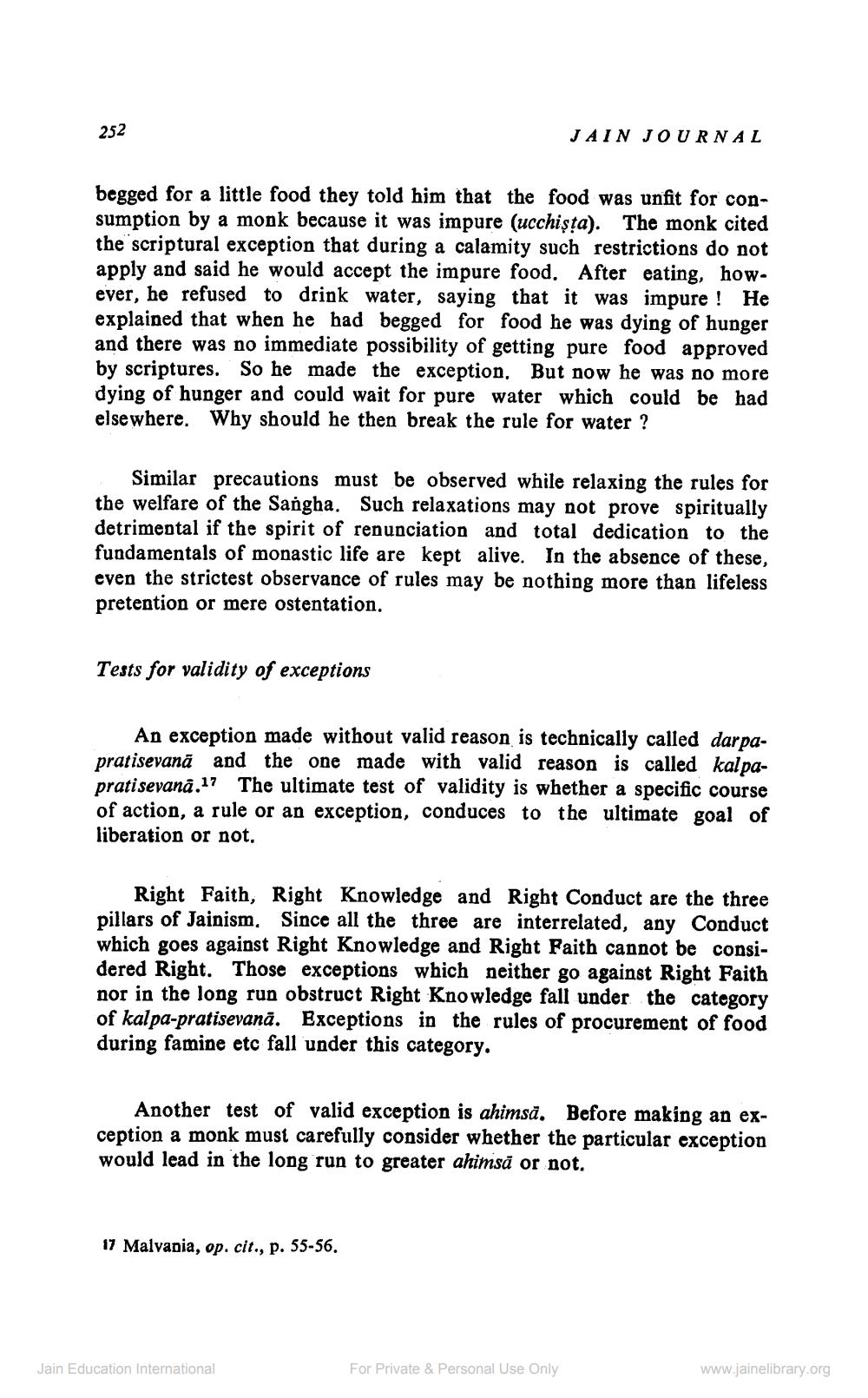________________
252
begged for a little food they told him that the food was unfit for consumption by a monk because it was impure (ucchiṣṭa). The monk cited the scriptural exception that during a calamity such restrictions do not apply and said he would accept the impure food. After eating, however, he refused to drink water, saying that it was impure! He explained that when he had begged for food he was dying of hunger and there was no immediate possibility of getting pure food approved by scriptures. So he made the exception. But now he was no more dying of hunger and could wait for pure water which could be had elsewhere. Why should he then break the rule for water ?
Similar precautions must be observed while relaxing the rules for the welfare of the Sangha. Such relaxations may not prove spiritually detrimental if the spirit of renunciation and total dedication to the fundamentals of monastic life are kept alive. In the absence of these, even the strictest observance of rules may be nothing more than lifeless pretention or mere ostentation.
Tests for validity of exceptions
JAIN JOURNAL
An exception made without valid reason is technically called darpapratisevana and the one made with valid reason is called kalpapratisevana.17 The ultimate test of validity is whether a specific course of action, a rule or an exception, conduces to the ultimate goal of liberation or not.
Right Faith, Right Knowledge and Right Conduct are the three pillars of Jainism. Since all the three are interrelated, any Conduct which goes against Right Knowledge and Right Faith cannot be considered Right. Those exceptions which neither go against Right Faith nor in the long run obstruct Right Knowledge fall under the category of kalpa-pratisevana. Exceptions in the rules of procurement of food during famine etc fall under this category.
Another test of valid exception is ahimsa. Before making an exception a monk must carefully consider whether the particular exception would lead in the long run to greater ahimsă or not.
17 Malvania, op. cit., p. 55-56.
Jain Education International
For Private & Personal Use Only
www.jainelibrary.org




